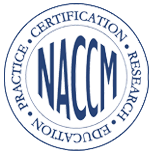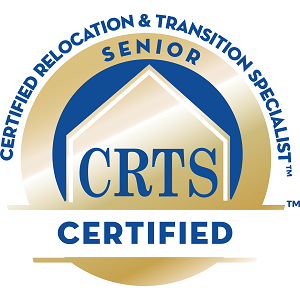Senior Fall Prevention: Lowering the Risk of Brain Injuries
Falls can have a significant impact on the health and well-being of older adults. More specifically, they are the leading cause of traumatic brain injuries (TBI) among seniors. In fact, according to the Centers for Disease Control and Prevention (CDC), over 36 million falls are reported annually among older individuals. Given the high incidence of falls among seniors, it is important to understand the risk factors that contribute to this issue and what steps can be taken to prevent falls and protect older adults from the potential harm they can cause.
What is Traumatic Brain Injury (TBI)?
Traumatic brain injury (TBI) is a condition that results from a sudden impact to the head and causes injury or damage to the brain. The most common incidents that can cause a TBI include falls, car accidents, and assaults. While TBI can affect anyone, it can cause especially devastating effects for older adults. In fact, TBI is the leading cause of death for people over the age of 65.
TBI can have a wide range of effects on the brain and body. Some of the most common effects include problems with memory, thinking skills, coordination, and balance. In some cases, TBI can lead to permanent disabilities. Due to the seriousness of these risks, it’s essential to know the signs that your senior loved one may have suffered a TBI so that you can take action immediately.
Here are five signs to look for:
- Changes in mood or behavior – Your loved one may become moody or withdrawn after suffering a TBI. This could be due to confusion or amnesia caused by the injury.
- Problems with vision or hearing – Your loved one may experience difficulties seeing or hearing correctly after suffering a TBI. This could lead to difficulty accessing medical information or contacting emergency services in an emergency.
- Erratic behavior – Your loved one may become violent or agitated suddenly after suffering a TBI. This might be due to changes in consciousness or impaired reasoning abilities caused by the injury.
- Changes in movement – Your loved one might start having trouble walking or getting around quickly after suffering a TBI. This could be due to dizziness, seizures, motor impairment (loss of muscle control), or a coma caused by the injury
- Difficulty speaking – After suffering a TBI, your loved one might struggle to communicate clearly and distinctly due to memory impairment and aphasia (a language disorder).
The Relationship Between Senior Falls and Brain Injuries
The relationship between senior falls and brain injuries is complex and significant. Falls are a common cause of traumatic brain injury (TBI) in older adults, and as people age, their risk of falling and suffering a TBI increases. The brain is especially vulnerable to injury in older adults because it loses some of its protective cushioning, making it more susceptible to injury from even a minor fall.
That’s why understanding what can cause falls in seniors is critical. According to the CDC, over 800,000 older adults are hospitalized for fall-related injuries each year, and about 40% of these hospitalizations result in a TBI. Not only do these falls lead to a greater risk of an TBI, but older adults with TBIs often have longer hospital stays and face a higher risk of disability, institutionalization, and death compared to older adults without TBIs.
Fall Prevention
Fall prevention is crucial for improving seniors’ safety and overall health. It is important for older adults and their caregivers to be vigilant about fall prevention and to seek medical attention promptly following a fall or head injury. Implementing simple precautionary protocols that prevent falls can help older adults maintain their independence, improve their quality of life, and reduce their risk of injury.
Older adults are at higher risk for falls due to various factors such as age-related changes in vision or balance, arthritis, impaired memory or dementia, and other chronic conditions that impair coordination and mobility. It’s important to remember that not every senior will experience all of these risk factors simultaneously; some may have only one or two of them. However, knowing about them is a vital first step in preventing falls.
Assessing a Senior’s Fall Risk
To help identify fall hazards in the home, it’s important for seniors to understand their physical abilities and limitations, including their walking speed and range of motion in various joints. Additionally, it can be helpful to assess their level of mobility – for example, wheelchair accessibility – and their ability to see and hear properly.
To maintain their balance and avoid falls while living at home, seniors must engage in regular exercise programs tailored specifically for their age group. Doing so can help improve strength and coordination while reducing inflammation throughout the body, leading to better balance overall. In addition to exercise programs designed specifically for seniors (and approved by a doctor), there are many other exercises they can do at home using simple equipment like resistance bands or even boxes placed around the house.
Last but not least – don’t forget about medications! Many medications can increase the risk of falling by affecting balance or coordination. Seniors should make sure to discuss their medications with a doctor before engaging in any strenuous activities or activities that require good balance, such as walking around outside. By understanding these common risk factors for falls, seniors can start taking steps toward preventing accidents from happening.
Preventing Falls and Brain Injuries in Seniors
One of the most important factors in fall prevention is awareness. As a loved one or caregiver, you can educate seniors about the danger of falls and brain injuries so that they know the risks. You can also make sure they understand the importance of taking regular breaks throughout the day and avoiding sudden movements. Finally, you can teach them how to identify risk factors for falls and how to take simple safety measures inside and outside their home.
To help ensure a safe home environment, seniors can also benefit from a home safety checklist that includes items like installing grab bars in the shower or installing anti-slip mats on stairways. Additionally, caregivers can install security systems in vulnerable areas like windows and doors, invest in weatherproofing measures for outdoor spaces, and monitor seniors’ physical health regularly so they can identify warning signs before a fall occurs.
Lastly, always assess a senior’s physical health before making any decisions about preventing falls or brain injuries. Doing so will help you determine if any particular safety measure is necessary or if other methods are available that would be more effective (like medication or therapy). Taking these simple steps before an incident occurs can help save your loved one from serious injury – both physically and mentally – down the road.
Working with a Senior Care Manager
As we age, our health begins to decline. In our senior years especially, frailty and poor mobility can lead to accidents and falls. Fortunately, there are ways to prevent these falls. At the same time, these precautions can be a lot for one person to take on. Caregivers and family members looking for help with fall prevention can benefit from the help of a care manager. A care manager is a professional who assists seniors in maintaining their independence and preventing falls. They work with seniors to create a personalized plan that considers their unique needs and goals.
Some key benefits of working with a care manager include improved independence and safety, a better quality of life, and reduced costs. A care manager can help seniors stay as independent as possible and reduce the chances of falls by assisting with everyday tasks. They can also help connect seniors with services and resources that will improve their quality of life, such as assistance with transportation, healthcare, or financial management. Seniors who work with a care manager tend to have reduced costs related to healthcare, medication, or assisted living facilities.
Reflections Management and Care offers several services designed specifically for senior fall prevention. If you or your loved one is struggling with falling or living safely in their home, please don’t hesitate to contact us for more information about how we can help you reach your goals!














